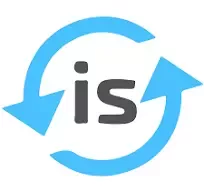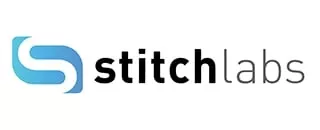Best Shopify Dropshipping Softwares for Online Sellers
Are you an e-commerce store owner looking to simplify your business operations and expand your product suite without the hassle of stocking inventory or handling shipping? Popular e-commerce platforms like Shopify can help you do exactly that. As the global dropshipping market is expected to reach $201 billion in 2024 and $1,253 billion by 2030, the dropshipping boom has placed platforms like Shopify at the helm, with the brand's popularity continually soaring given its ease of use, automated order fulfillment, and simplified product sourcing. Through affordable pricing plans to cater to businesses of all sizes, entrepreneurs, small businesses, and established brands alike can now scale in gusto, without over spending.
Although Shopify's popularity speaks for itself, it bears keeping in mind that to run a successful dropshipping business, the right softwares can go a long way in streamlining your operations. There are various platforms that integrate seamlessly with Shopify, enabling sellers to browse vast catalogs of trending products and add them directly to their stores. These dropshipping softwares can basically take care of everything for you - from order sourcing to fulfillment, supplier coordination, and shipping logistics. With the major dropshipping duties off your hands, as a seller you are free to focus on marketing and customer engagement, leaving practically all else, to these nifty softwares.
Let's move ahead and discuss the benefits of using Shopify dropshipping tools, how you can choose the right ones for your store, the best practices for using them, the common mistakes to avoid, and additional insights to help optimize your online store’s performance.
Benefits of Shopify Dropshipping Softwares for Online Sellers
After all, who doesn't want to make their life easier? If there are softwares out there that can help manage your inventory for you, source products, automate order fulfillment, and take care of all the mechanical stuff so you can run an efficient, scalable e-commerce store, there is no downside to this arrangement. So here goes the key benefits of using dropshipping softwares on Shopify:
-
Automated Product Sourcing and Order Fulfillment: Shopify dropshipping tools enable sellers to automatically sync products from suppliers into their Shopify stores. This automation minimizes manual work and ensures that orders are efficiently processed and fulfilled.
-
Access to a Wide Range of Products: Dropshipping softwares can help sellers quickly source products from a vast network of suppliers. This is a great way to expand your product catalog without the need to manage inventory physically.
-
Real-Time Inventory Management: Many Shopify dropshipping tools offer real-time inventory tracking, ensuring that you’re always up-to-date on stock levels. This reduces the risk of selling out-of-stock items and keeps your store running optimally.
-
Streamlined Supplier Communication: Dropshipping softwares can fast-track as well as simplify communication with suppliers, making it easier to manage orders, track shipments, and handle potential issues.
-
Scalability: Whether you’re running a small Shopify store or scaling up to a larger operation, dropshipping softwares can accommodate room for growth because you are not required to sit on inventory. Sellers are free to add new products and suppliers as they see fit, making scaling your store a lot easier.
How to Choose the Right Shopify Dropshipping Softwares?
Typically, there is no one-size-fits-all approach to selecting softwares to match the requirements of sellers. The right dropshipping softwares for you may not be the ideal set of choices for the next e-commerce store- these decisions could vary depending on the scale of your business, the products you want to sell (if they are relevant to your niche), and on the range of suppliers. But here are the broader factors to consider when looking for the best softwares for your business:
-
Integration with Shopify: Ensure the software integrates seamlessly with Shopify, allowing you to easily add products, manage orders, and sync data between your store and the dropshipping app.
-
Reliable Supplier Network: Look for softwares that offer access to reliable suppliers who provide high-quality products. An extensive supplier network gives you more flexibility when selecting products.
-
Automated Pricing and Profit Margin Management: Choose softwares that automates pricing updates, including dynamic pricing to ensure profitability. This feature can help you manage your pricing strategy more effectively and increase your margins as a seller.
-
Real-Time Inventory Syncing: The ability to sync inventory in real-time ensures that you always have accurate stock information, preventing you from accidentally selling products that are out of stock!
-
Shipping and Tracking Automation: Fast and reliable shipping is key to customer success. Ensure the software allows you to track shipping times, gives customers the option to easily track their shipments, offers international shipping options, and works with suppliers that have short delivery windows.
- Pricing Transparency: Make sure the software’s pricing is clear and transparent, with no hidden fees or unexpected costs. This helps you plan your expenses and avoid surprises!
-
Customer Support: Reliable customer support is essential for resolving any technical issues or challenges with the software. Look for software providers with strong support options.
Syncee is a platform for Shopify dropshipping that connects online sellers with a wide range of suppliers and products. It offers an easy-to-use interface for importing and managing products, helping sellers streamline their dropshipping operations and scale their businesses efficiently.
A2X integrates with Shopify to automate accounting and streamline financial reporting for dropshipping businesses. It helps online sellers accurately reconcile transactions, ensuring better financial visibility and reducing manual bookkeeping errors.
Eva.guru provides tools for Shopify dropshipping that help online sellers streamline product sourcing, inventory management, and order fulfillment. With its data-driven insights, it enables sellers to optimize their store operations and increase profitability in the competitive dropshipping market.
WholeSale2B is a dropshipping platform integrated with Shopify, offering online sellers access to a wide range of products for seamless e-commerce management. It provides tools for inventory automation, order fulfillment, and product sourcing to streamline the dropshipping process and improve sales efficiency.
Spocket is a Shopify dropshipping platform that connects online sellers with a wide range of suppliers offering high-quality products. With a focus on seamless integration and fast shipping options, it helps sellers streamline their operations and grow their e-commerce businesses.
Aliinspector is a tool designed for Shopify dropshipping, offering online sellers in-depth product research and market insights. It helps identify profitable products, analyze trends, and streamline sourcing, making it easier for sellers to make informed decisions and optimize their store performance.
Inventory Source offers a streamlined solution for Shopify dropshipping, enabling online sellers to automate product sourcing and inventory management. With integrations to top suppliers, it helps sellers efficiently manage their stores and focus on scaling their businesses.
Sellerchamp is a Shopify dropshipping tool that simplifies product listing, inventory management, and order fulfillment for online sellers. By automating key processes, it helps sellers streamline operations and enhance efficiency across multiple sales channels.
Stitch Labs is a robust inventory and order management platform designed for Shopify dropshipping sellers. It helps streamline operations by providing real-time tracking, order syncing, and reporting, allowing sellers to efficiently manage their product listings and fulfill customer orders.
Best Practices for Using Shopify Dropshipping Softwares
So, your online store is all set to roll— are you wondering about the best practices to move forward? Here are a few key pointers to consider:
-
Choose Trusted Suppliers: Before adding products to your store, ensure that the suppliers you work with are reliable and offer quality products. This minimizes the chances of dealing with unsatisfied customers due to poor product quality.
-
Regularly Monitor Product Performance: Use the software’s analytics and reporting tools to monitor which products are performing well and which are not. This insight can help you adjust your product offerings to better suit customer demand.
-
Optimize Your Product Listings: Take the time to optimize product descriptions, images, and pricing for SEO and conversions. High-quality listings are essential for attracting customers and driving sales.
-
Set Realistic Shipping Expectations: Dropshipping often involves longer shipping times, especially when sourcing products from overseas. Make sure to set clear expectations with customers regarding shipping times and provide tracking information to enhance transparency.
-
Monitor Inventory Levels Frequently: Stay on top of inventory management to avoid selling out-of-stock items. This is particularly important when working with multiple suppliers who may have fluctuating stock levels.
Common Mistakes to Avoid When Using Shopify Dropshipping Softwares
Let's face it, nobody likes a glitch in the consumer matrix. Receiving bad quality products can significantly kill your customer's experience with your store, and sometimes even hamper their retail therapy. Here are some key mistakes to avoid:
-
Neglecting Supplier Vetting: Not thoroughly vetting suppliers before adding their products to your store can lead to issues with product quality and shipping delays. Always research and test suppliers before committing to long-term partnerships.
- Relying Solely on One Supplier: Depending too heavily on one supplier can be risky, especially if they experience inventory shortages or shipping delays. Diversify your supplier base to mitigate potential disruptions.
- Ignoring Customer Feedback: Customer feedback is a valuable resource for improving your product offerings and service quality. Pay attention to what customers are saying and make adjustments accordingly to enhance their experience.
-
Not Monitoring Trends: The e-commerce industry is constantly evolving, and consumer trends change quickly. Failing to stay updated on the latest trends can result in missed opportunities to offer in-demand products.
- Overlooking Pricing and Profit Margins: Failing to keep track of your profit margins can erode your profits. Use the software’s automated pricing tools to maintain competitive yet profitable pricing on all products.
Final Thoughts
Shopify dropshipping softwares can help online sellers streamline operations, automate order fulfillment, and source high-quality products from the comfort of their homes. By selecting the right platforms, avoiding common mistakes and following vetted practices, it is quite easy to build a successful Shopify store that can set you up for scalability. Whether you're just starting with dropshipping or looking to optimize your existing operations, the softwares above can help you succed, and possibly thrive, in the e-com store universe as you rake in the profits!








